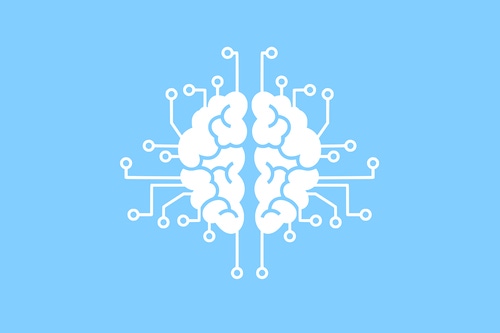The most effective artificial intelligence is totally unnoticeable by the end user

The most effective artificial intelligence is totally unnoticeable by the end user.
In advance of the four-day AI Business Week Digital Symposium I’ll be participating in starting on Feb. 22, I’ve been having conversations with the speakers. Recurring themes I’m hearing are that AI is emerging as a powerful tool, but hardly a substitute for human control, and that AI will become more useful once it is integrated and packaged within service offerings.
Enough time has passed, and plenty of pilot projects have run their course, so today businesses better understand both what customer experience needs to be, and what it takes to get there.
Turns out that good AI hides in plain sight.
“It’s complicated,” says Ricky Ray Butler, CEO of Branded Entertainment Network, a Bill Gates-owned company that leverages structured and unstructured data to creatively place products within the most appropriate content, including TV, movies, and streaming video.
Anyone who watches TV likely has experienced the company’s work with AI without realizing it.
Meanwhile, Sebastian Reeve, director of international go-to-market and intelligent engagement at Nuance, sees ambient AI voice assistants coming to locations such as bank branches and medical offices.
In healthcare, AI is becoming an essential tool, notes Matthew Brady, head of healthcare content at Omnia Health. Brady sees AI becoming embedded within platforms such as Salesforce, eliminating the need to create or acquire certain AI functionality.
While AI can be used to quickly read and analyze medical scans, the radiologist or physician still makes the call.
British startup Babylon Health is using AI to answer questions that help in early diagnosis, to get the “right patient at the right time to the right medical care provider,” says Umang Patel, director for NHS Services.
And while the “paperless office” is yet to be fully realized, at least AI is lending a hand at converting what’s on paper. In the highly regulated world of financial services, Salahuddin Khawaja, managing director for automation and global risk at Bank of America, describes how the organization is using NLP to analyze paper documents and automatically extract and segment the appropriate information.
Of course, invisible AI can be good or bad; for example, Keith Kirkpatrick, principal analyst at Omdia, calls out “bad virtual assistants,” that just don’t get it right. Too many consumers have experienced running in circles trying to navigate through poorly designed chatbots, often presented by major brands.
In manufacturing, AI-based systems might remain invisible, while enabling transformation and improving the bottom line in production facilities, the front office, and among the workforce, says Tony Uphoff, CEO of Thomas Publishing.
Meanwhile in the energy sector, AI-based systems are studying the electrical grid. At Uniper, which operates in 40 countries, AI gives recommendations to a plant manager, but the human operator is still responsible, Tobias Mathur, the company’s head of AI operations, says.
There generally is more value in selling something you can’t see, such as consulting, services, or software. Conversely, physical objects can nearly always be made cheaper by someone else, thereby driving down revenue, since such products can be more easily commoditized.
Being invisible – seamless to the user experience – is key. The only catch is that the easier it looks, the harder it is to create. We are still early in the journey to the future of invisible AI, where the massive payoffs reside.
About the Author(s)
You May Also Like


.jpg?width=700&auto=webp&quality=80&disable=upscale)
.jpg?width=700&auto=webp&quality=80&disable=upscale)
.jpg?width=700&auto=webp&quality=80&disable=upscale)
.jpg?width=300&auto=webp&quality=80&disable=upscale)
.jpg?width=300&auto=webp&quality=80&disable=upscale)
.jpg?width=300&auto=webp&quality=80&disable=upscale)

